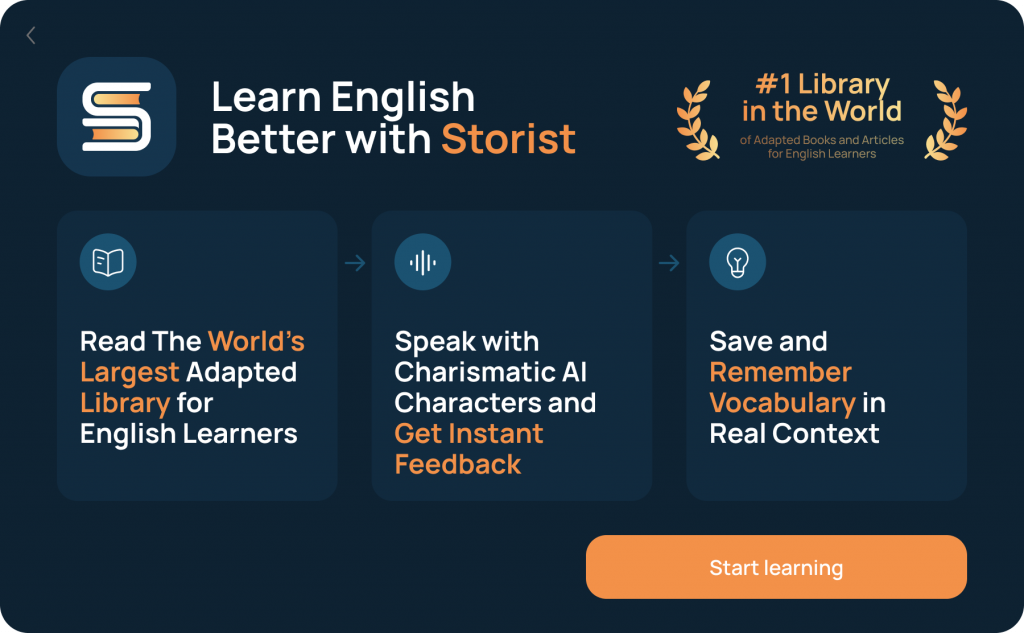Master English Tests in Japan with LingQ’s Interactive Learning Platform
Prepare for TOEIC, TOEFL, and EIKEN exams in Japan using LingQ’s interactive lessons, vocabulary tools, and proven study methods.
Understanding English Test Requirements in Japan
In Japan, English tests such as TOEIC, TOEFL, and EIKEN play a vital role in educational and career advancement. Our platform offers tailored content designed to meet the diverse demands of these exams. TOEIC focuses on business communication skills, TOEFL on academic English, and EIKEN on graded proficiency levels with interview components. We help learners target their specific goals by providing relevant materials and practice exercises. This approach ensures efficient preparation aligned with Japan’s English test standards.
To begin with, students must identify their target exam and corresponding proficiency level. Our system then recommends personalized lesson plans and resources. The learning path includes vocabulary building, listening practice, and reading comprehension that directly reflect the test formats. Students can track their progress and adjust study intensity based on detailed analytics. This structure promotes steady improvement and confidence in test performance.
| Test Type | Main Focus | Recommended Study Duration | Success Rate |
|---|---|---|---|
| TOEIC | Business English, Workplace Communication | 3-6 months | 85% improvement |
| TOEFL | Academic Writing, Research Skills | 4-8 months | 78% target score |
| EIKEN | Graded Progression, Interview Skills | 2-4 months | 92% pass rate |
Step-by-Step Registration and Getting Started
To start learning with LingQ in Japan, visit our website and create a free account. The registration requires basic information including email and password. After confirming your account via email, complete an initial placement test to assess your English proficiency (A1 to C2). The platform then generates a customized study path tailored to your test preparation needs.
Accessing lessons is straightforward through desktop or our mobile app available on iOS and Android. Select your target exam to view relevant courses and resources. Each lesson includes interactive reading, audio, and vocabulary tools. Students can bookmark words, listen to native speaker recordings, and complete exercises at their own pace.
Tracking progress is integrated into the platform’s dashboard. This feature displays completed lessons, vocabulary mastery rates, and practice test scores. Learners can set weekly study goals, typically recommended at 5-7 hours for optimal results. Notifications and reminders help maintain consistent study habits.
LingQ’s Systematic Vocabulary Building
Vocabulary is fundamental for success in English tests in Japan. Our platform converts passive reading into active learning using the LingQ system. When students encounter unknown words, they can save them as LingQs for focused review. This method builds a personalized vocabulary bank relevant to each learner’s goals.
The progress is visually tracked by a color-coded system: blue for new words, yellow for words under review, and white for mastered terms. This immediate feedback guides learners on which words need more practice. Our spaced repetition algorithm schedules reviews at optimal intervals to reinforce long-term retention.
Exercises vary across formats, including flashcards, cloze tests, and multiple choice questions. This diversity strengthens recognition and recall under exam conditions. Vocabulary sets cover general English, business terminology, and academic language, matching the demands of TOEIC, TOEFL, and EIKEN.
### H3: Context-Based Learning Methods
Embedding vocabulary in context enhances understanding and usage. Our platform provides reading materials rich in realistic scenarios, allowing students to see how words function naturally. This approach is especially beneficial for recognizing collocations and idiomatic expressions common in English tests. Topics range from scientific articles to current events, broadening lexical exposure.
### H3: Interactive Vocabulary Tools
Users can listen to native pronunciations of saved words and record their own for comparison. This feature supports both recognition and production skills. Additionally, vocabulary progress is linked to overall lesson advancement, motivating learners to maintain consistent practice.
### H3: Vocabulary Progress Tracking
Students can monitor their vocabulary acquisition rate through detailed statistics. Metrics include total words learned, review success rate, and retention over time. These insights inform adaptive recommendations for future study sessions.
Audio Integration and Listening Skills Development
Listening comprehension is a critical skill for English tests in Japan, often challenging due to limited exposure to natural English speech. Our platform integrates synchronized audio with text materials, enabling simultaneous reading and listening practice. The karaoke-style highlighting guides learners word by word, enhancing connection between spoken and written forms.
The audio library features various accents including American, British, and Australian English. This variety prepares students for diverse test scenarios. Repeated listening to short passages builds familiarity with pronunciation and intonation patterns common in exams.
Speaking practice is supported through pronunciation models and voice recording tools. Students can compare their pronunciation with native speakers and receive automated feedback. Conversation exercises simulate interview and discussion prompts typical in EIKEN advanced levels.
### H3: Listening Strategy Development
Our platform teaches students to identify main ideas, supporting details, and infer meaning. Pre-listening activities activate relevant vocabulary, improving comprehension. Taking notes during listening exercises enhances retention and focus, skills essential for TOEFL and TOEIC listening sections.
### H3: Pronunciation Practice Features
Pronunciation drills include minimal pairs, stress patterns, and intonation exercises. These targeted practices improve clarity and fluency for speaking test components. Regular practice through our mobile app supports consistent skill development.
### H3: Listening Progress Measurement
Listening accuracy and speed are tracked via quizzes and practice tests. Results provide feedback on strengths and areas needing improvement. This data helps students adjust study focus for maximum gains.
Reading Comprehension and Test Strategies
Reading sections are substantial components of English tests in Japan. Our platform offers extensive practice with various text types such as academic articles, opinion pieces, and news reports. These materials match the complexity and format of actual examinations.
We emphasize strategic reading skills including skimming for gist and scanning for specific information. Time management techniques help students complete reading tasks efficiently. Familiarity with question types, including multiple choice and true/false, reduces test anxiety and improves accuracy.
Students learn to preview questions before reading, identify main ideas, and use context clues for vocabulary understanding. Regular timed exercises sharpen reading speed and comprehension under test conditions.
### H3: Academic Text Analysis
For TOEFL candidates, university-level texts provide practice with complex sentence structures and specialized vocabulary. Students analyze thesis statements, arguments, and evidence to develop critical reading skills. This training supports success in academic English tests.
### H3: Reading Skill Development Exercises
Our platform includes comprehension quizzes, summarization tasks, and error detection activities. These exercises strengthen understanding and analytical abilities. Progress tracking highlights areas needing additional focus.
### H3: Time Management Tips for Reading Sections
Effective pacing strategies prevent rushing or incomplete answers. Students practice allocating time per passage and question type. This method improves overall test performance.
| Reading Skill | Focus Area | Practice Format |
|---|---|---|
| Skimming | General Understanding | Timed Passage Reading |
| Scanning | Specific Information | Multiple Choice Questions |
| Vocabulary in Context | Word Meaning | Contextual Exercises |
Writing Skills and Essay Development
Writing is a key component in advanced English tests like TOEFL and upper-level EIKEN. Our platform provides structured writing practice with model essays and guided exercises. Students learn standard formats such as argumentative and integrated essays.
Grammar accuracy is targeted through error identification and correction drills. Automated feedback highlights common mistakes and suggests improvements. Vocabulary usage in writing is enhanced via context-based activities focusing on academic and professional expressions.
Paragraph development receives step-by-step instruction to improve coherence and flow. Students practice crafting topic sentences, supporting details, and transitions.
### H3: Argumentative Writing Techniques
Students develop logical arguments supported by evidence. The platform teaches thesis statement formulation, counterargument integration, and use of transition phrases. These skills improve clarity and persuasiveness in writing tasks.
### H3: Grammar Practice Modules
Daily grammar exercises address sentence structure, verb tenses, and punctuation. Regular practice reduces common errors affecting test scores.
### H3: Writing Assessment and Feedback
Peer review and self-assessment tools encourage reflective learning. Progress is tracked based on writing complexity and error reduction.
| Writing Component | Skills Developed | Practice Time | Assessment Method |
|---|---|---|---|
| Essay Structure | Organization, Coherence | 2-3 hours weekly | Peer review, Self-assessment |
| Grammar Accuracy | Sentence Construction | 1 hour daily | Error identification exercises |
| Vocabulary Usage | Academic expressions | 30 minutes daily | Context-based activities |
Mobile Learning and Flexible Study Options
LingQ’s mobile application supports flexible study suited to Japan’s busy lifestyles. Learners can practice vocabulary and review lessons during commutes or breaks. The app syncs progress with desktop usage, ensuring seamless learning across devices.
Offline access allows downloading of lessons and vocabulary sets for study without internet. Notifications remind students to maintain regular practice. Voice recording features enable pronunciation practice anytime.
Progress analytics provide insights into study habits and performance trends. Students receive personalized recommendations to optimize study focus and timing.
### H3: Downloadable Content and Offline Access
The app’s offline capability ensures uninterrupted learning during travel or in low-connectivity areas common in Japan’s public transport.
### H3: Progress Synchronization and Notifications
Automatic syncing keeps study data updated across platforms. Customizable reminders help build consistent routines.
### H3: Voice Recording for Speaking Practice
Recording tools assist in self-evaluation of pronunciation and fluency. Playback and comparison with native models support improvement.
Test Simulation and Performance Analytics
Preparing under real test conditions is vital for success in English tests in Japan. Our platform offers full-length practice exams replicating official test formats and timing. This experience reduces test-day anxiety and builds familiarity.
Detailed analytics track vocabulary size, reading speed, listening accuracy, and writing quality. These metrics provide actionable feedback for targeted study. Score prediction algorithms estimate expected results based on practice performance.
Error analysis categorizes mistakes by skill area, enabling focused remediation. Progress visualization motivates learners by showcasing improvements and milestones.
| Performance Metric | Measurement Method | Improvement Timeline | Success Indicator |
|---|---|---|---|
| Vocabulary Size | Known word tracking | 4-6 weeks | 500+ new words |
| Reading Speed | Words per minute | 6-8 weeks | 200+ WPM increase |
| Listening Accuracy | Comprehension scores | 8-10 weeks | 15+ point improvement |
### H3: Realistic Test Simulations
Timed mock exams simulate the pressure and format of TOEIC, TOEFL, and EIKEN. Immediate scoring and feedback help identify strengths and weaknesses.
### H3: Error Analysis and Targeted Remediation
Our platform highlights recurring errors and provides exercises addressing them specifically. This focused approach maximizes study efficiency.
### H3: Progress Visualization and Motivation
Graphs and milestone badges track growth in vocabulary, reading, and listening skills. This transparent feedback supports sustained motivation during preparation.


